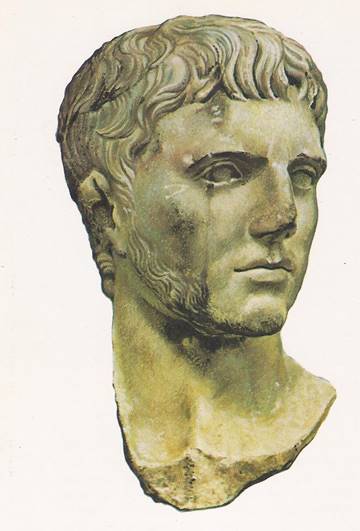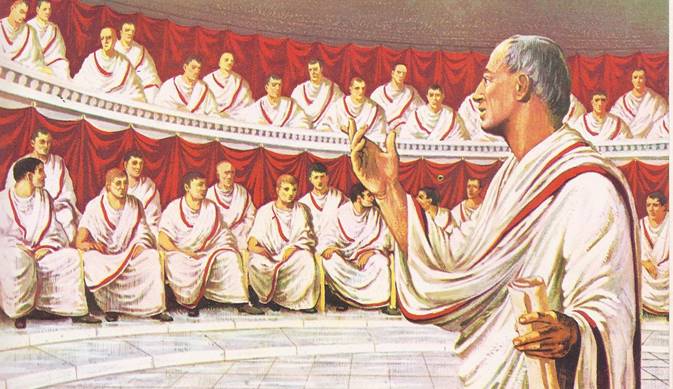AS THE news of Caesar’s death spread through Rome, sorrow, anger and fear took hold of the city. On March 17, two days after the murder, the Senate met again. Cassius, Brutus and the other assassins took their usual places. There was no doubt that most of their fellow senators felt that they had done the right thing in ridding Rome of a tyrant, but Caesar’ s veterans were still in the city, taking their orders now from Marcus Aemilius Lepidus, who had been his Master of the Horse, the commander of the cavalry. Mark Antony was still consul, he …
Read More »Tag Archives: Sulla
The City of Caesar 80 B. C. – 44 B. C.
THE story of Rome in the years after Sulla’s death was the story of a partnership of power. It was the tale of three men who bargained for the world — a rich man, a poor man and a man who was not only a hero, but looked it. The rich man was Crassus, who had become a millionaire by setting up the only fire department in Rome. The tall buildings and narrow, crowded streets of the city made a fire a constant danger. When one house burned to the ground, the buildings on either side were likely to fall …
Read More »The City Divided 130 B. C. – 70 B. C.
MARCUS TULLIUS CICERO, a young statesman known for his dramatic speeches, stood before a panel of judges in a courtroom in Rome. He stared at them angrily. For fifty days he had travelled through Sicily, collecting facts about the crimes committed by Caius Verres, the man who was on trial. Now the judges had told him that there would not be time to listen to his evidence. Cicero knew that the judges had been bribed. For it was no ordinary criminal that he meant to send to prison or to death. Caius Verres was an aristocrat and a senator and …
Read More »

